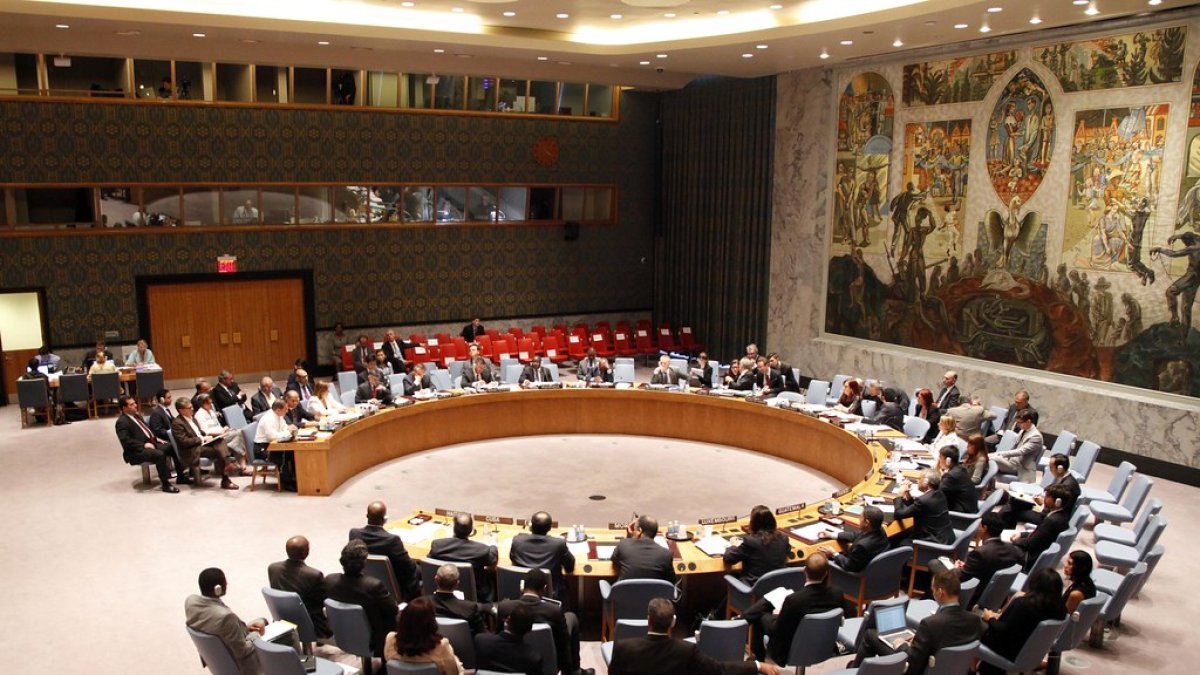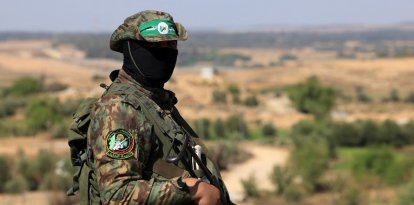UN passes resolution for immediate ceasefire in Gaza
The United States abstained in the Security Council vote because the resolution does not condemn Hamas, but did not veto it.

Consejo de Seguridad de la ONU
The U.N. Security Council voted Monday in favor of a proposed resolution that includes a "demand" for an immediate humanitarian ceasefire during the Islamic holy month of Ramadan, which will end on April 9, and for the "immediate and unconditional release" of the hostages abducted by Hamas.
The resolution, proposed by the 10 elected members of the council, was supported by 14 countries. The United States abstained because the decision does not condemn Hamas, but did not veto the resolution.
Following the vote and the lack of a U.S. veto, Israeli Prime Minister Benjamin Netanyahu decided to cancel sending a delegation to Washington, headed by Strategic Affairs Minister Ron Dermer.
In a statement issued after the vote, the Israeli Prime Minister's Office said: "The U.S. has withdrawn from its consistent position in the Security Council where it only a few days ago made a connection between a cease-fire and the release of the hostages. This withdrawal hurts both the war effort and the effort to release the hostages, because it gives Hamas hope that international pressure will allow them to accept a cease-fire without the release of our hostages."
As reported by the Israeli media outlet Ynet, senior Israeli officials stated that "the Security Council's call for an immediate ceasefire is very problematic, because it does not impose anything on Hamas."
The officials explained that the fact that it calls for "a ceasefire and the release of the abductees means that they can put pressure on us, which is exactly what the countries of the world want." However, they added that "they will not put pressure on Hamas, because they have no way to do so."
This is the first proposed resolution that has been approved by the U.N. Security Council since the outbreak of the war on Oct. 7. It should be noted, however, that it is only a declaratory decision.
U.S.: 'We support the critical goals that appear in this decision'
U.S. Ambassador to the U.N. Linda Thomas-Greenfield stated after the vote that "we are getting closer to an agreement on an immediate ceasefire and the release of the abductees, but we are not there yet."
The official blamed Hamas for the slow progress toward a truce. "Let's be clear - a ceasefire could have been within reach months ago - if Hamas was willing to release all the abductees. But Hamas continues to oppose peace, to put up blockades, to build tunnels under the streets of Gaza, to operate from civilian sites and infrastructure and behind civilians".
Thomas-Greenfield added: "I call on the whole world - to speak out and call on Hamas to accept the agreement on the table. I don't expect it from Russia and China because they cannot condemn the terrorist acts of Hamas on October 7. They are only trying to cause a split in the Security Council through cynical exploitation of the situation.
"Since there was no required condemnation of Hamas, we could not vote in favor," the ambassador added. "However, we support the critical goals that appear in this decision, and believe that it was important for the council to speak and make sure that any ceasefire should come with the release of all the abductees."
The proposal was backed by Russia and China, in addition to the support of the 22 countries from the Arab bloc at the United Nations.
Russia and China vetoed a resolution Friday presented by the United States.
Russia and China on Friday vetoed a U.S. resolution submitted to the U.N. Security Council for an "imperative" ceasefire in Gaza as part of an agreement to release Hamas' hostages, to protect civilians and allow humanitarian aid to be delivered to more than 2 million Palestinians.
Vasily Nebenzya, Russia's ambassador to the U.N., said that the resolution presented by the United States "contains an effective green light for Israel to mount a military operation in Rafah." He added that his country "pointless resolutions … which lead us to nowhere."
U.S. Ambassador to the U.N. Linda Thomas-Greenfield criticized the Chinese and Russian decision in harsh terms.
"today, the United States put forward a resolution in good faith after consulting with all Council members and after multiple rounds of edits. The vast majority of this Council voted in favor of this resolution, but unfortunately, Russia and China decided to exercise its veto."
Thomas-Greenfield added that "there are two deeply, deeply cynical reasons behind its vote. First, Russia and China still could not bring itself to condemn Hamas’ terrorist attack on October 7 ... The second reason behind this veto is not just cynical, it’s also petty. Russia and China simply did not want to vote for a resolution that was penned by the United States, because it would rather see us fail than to see this Council succeed. Even after inclusive consultations over weeks and weeks."
Gilad Erdan, Israel's representative to the U.N., thanked the United States, and regretted that "for purely political reasons, this resolution did not pass, and terrorists can continue benefiting from this council whitewashing their crimes."

























